 Are your customers leaving negative comments on social media?
Are your customers leaving negative comments on social media?
Do you need a plan to handle customer complaints?
Responding quickly and appropriately to negative social comments can help you increase customer loyalty and retention.
In this article you’ll find out how to deal with negative comments on social media.
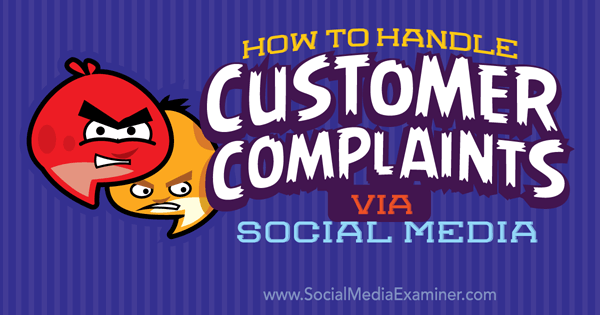
Listen to this article:
Where to subscribe: Apple Podcasts | Spotify | YouTube Music | YouTube | Amazon Music | RSS
#1: Respond Quickly
It's important to respond quickly and efficiently to customer complaints on social media.
As a starting point, try to reply within 1 hour. This doesn't mean you need to have all the answers right away. Customers typically want you to acknowledge their issue so they know you‘re looking into it.

Next, let customers know when they can expect a response. This helps you manage expectations and reduce negative feedback. You've acknowledged the issue and set a realistic time frame for a response.
It's important to consistently provide this same level of response on social media, even on weekends. According to a study from Convince & Convert, 40% of respondents expect a response time within hours of leaving a complaint.
#2: Acknowledge Mistakes
Consumers know that no business is perfect, so instead of hiding mistakes, it's best to own up to them.
When you apologize to fans on social media, you acknowledge mistakes and take ownership. This also prevents the customer from continuing to blame your company for the mistake or issue. Then you can focus on the real task at hand, which is to help find a solution.
When you post an apology on social media, make sure it‘s genuine. People will be quick to highlight apologies that appear to have been copied and pasted from a script or that lack emotion. Instead, show your human side and use your natural tone of voice.
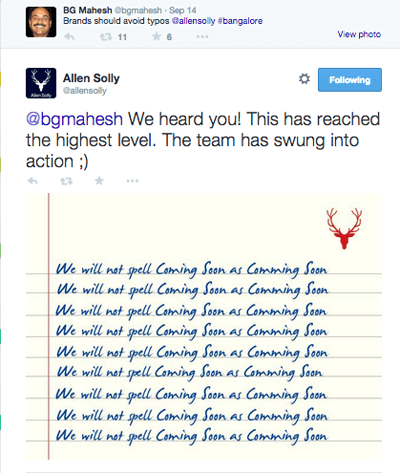
Above, you can see how Fashion brand Allen Solly found a creative way to apologize and respond to this customer's comment.
When you've made a mistake, it's best to show transparency, be honest and do everything in your power to fix the situation right away. For example, Pizza Hut took ownership of a mistake with an order by responding promptly and apologizing to the customer.
Get World-Class Marketing Training — All Year Long!
Are you facing doubt, uncertainty, or overwhelm? The Social Media Marketing Society can help.
Each month, you’ll receive training from trusted marketing experts, covering everything from AI to organic social marketing. When you join, you’ll also get immediate access to:
- A library of 100+ marketing trainings
- A community of like-minded marketers
- Monthly online community meetups
- Relevant news and trends updates
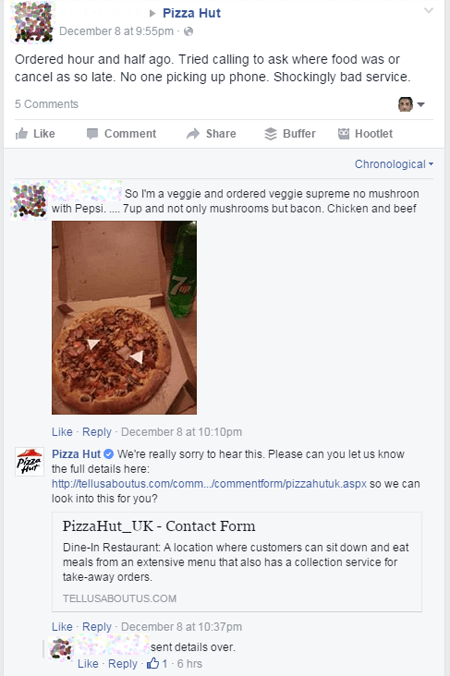
Remember, it takes time to build trust with your customers, but it takes only seconds to lose it.
#3: Take Conversations Offline
All communications on social media are in the public eye, and often when dealing with negative comments, this can prompt others to join in.
The best course of action is to take the conversation offline so you can talk to the person one on one. This prevents the situation from escalating, and also helps calm the customer, because you're working with him or her to resolve the problem.
#4: Personalize Your Responses
When customers reach out to you with a negative social comment, they're typically looking for you to acknowledge and help resolve their problem. If you respond with an automated reply, you're sending a message that you haven't taken time to understand the issue and don't value the customer's input.
Here's an automated response that has no relevance to the customer's negative comment.
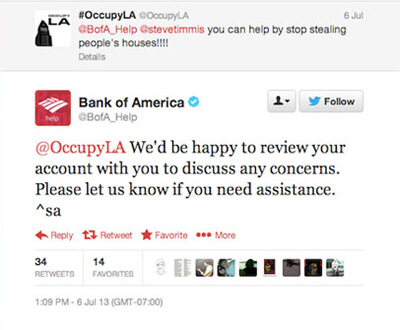
When responding to negative comments, these tips will help you reassure customers:
- Reply using a conversational tone.
- Include the customer‘s name in the response.
- Let the customer know how you will fix the issue.
- If it's a mistake, take ownership.
- Acknowledge the customer‘s situation in your response.
Automated replies can save you time when answering common queries online, but only use them as templates for your responses. The key is to personalize your messages, rather than copy and paste the same message every time.
#5: Don't Take It Personally
When dealing with negative comments on social media, remember that customers aren‘t angry with you as an individual. They're angry about the situation they're in. That's why you should never take these responses personally or respond to the customer in a negative manner as a result.
The last thing you want to do is make matters worse and respond aggressively.
#6: Put Together an Escalation Plan
An escalation policy is a document that will help your employees figure out who to contact in the company when handling complaints. The document should include a full list of employees and departments in your company along with their contact details.

Discover Proven Marketing Strategies and Tips
Want to go even deeper with your marketing? Check out the Social Media Marketing Podcast! Publishing weekly since 2012, the Social Media Marketing Podcast helps you navigate the constantly changing marketing jungle, with expert interviews from marketing pros.
But don’t let the name fool you. This show is about a lot more than just social media marketing. With over 600 episodes and millions of downloads each year, this show has been a trusted source for marketers for well over a decade.
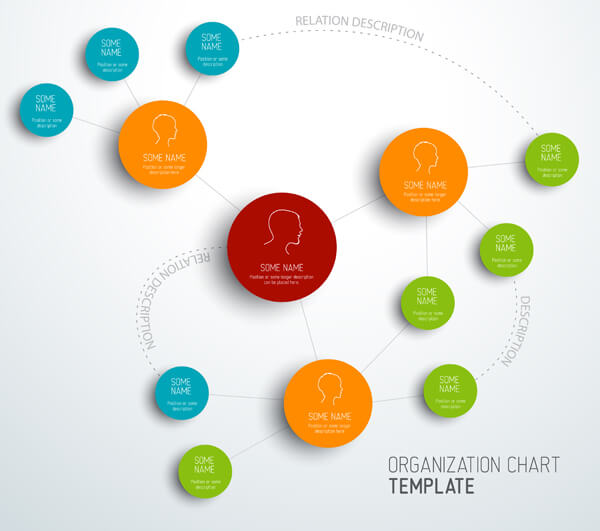
With this document in place, any employee who handles a complaint can (if needed) quickly escalate the issue to the correct person. Employees may also need to get approval for more serious issues, and this list will allow them to reach out directly to the appropriate person.
An escalation policy not only speeds up your response time on social media, but also helps employees find solutions more quickly.
#7: Go the Extra Mile
One of the main reasons customers leave negative comments on social media is they haven't been able to get the information they need from the company.
The good news is you don't need to have all of the answers. In fact, when you don't have the answer, referring your customers to an external resource or even another company's product or service is actually a good thing.
Rather than reduce trust, this actually increases it. Your customers will appreciate that you've gone the extra mile to help solve their problem. For example, a Gaylord Opryland hotel customer tweeted about her interest in purchasing an item from her hotel room.
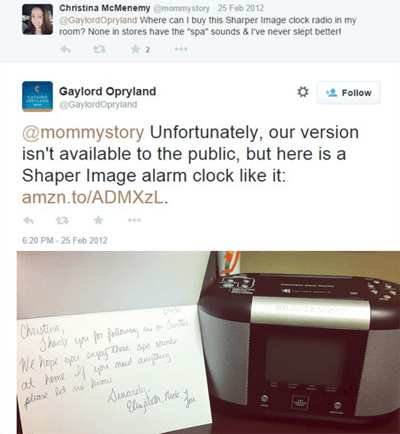
Although the item wasn't available for sale, the hotel found a similar product available at an online retailer and provided a link to it for the customer's convenience.
#8: Follow Up
Once you've responded to a complaint on social media, don‘t assume that you‘ve resolved the issue. Follow up to make sure you‘ve fully met the customer‘s needs. A personal approach lets customers know you value their opinion and put their needs first.
It's typically best to follow up with the customer within a couple of days. This helps you identify early issues and keeps the interaction top of mind. It's also a good way to gather feedback about the customer‘s overall experience with your company.
Here's how Zappos followed up with a customer about a missing order of shoes.

Rather than assume the issue was resolved after replacing the shoes, Zappos continued to communicate with the customer to make sure her issue was handled satisfactorily.
#9: Don't Delete Negative Comments
Deleting negative social media comments won't make them go away. In fact, if you delete and ignore them, customers will likely keep on commenting and venting their frustration until you've addressed them.
Although you should never delete a negative comment from a customer, it's also not acceptable for customers to be rude or disrespectful to your company or toward other fans on your social channels.
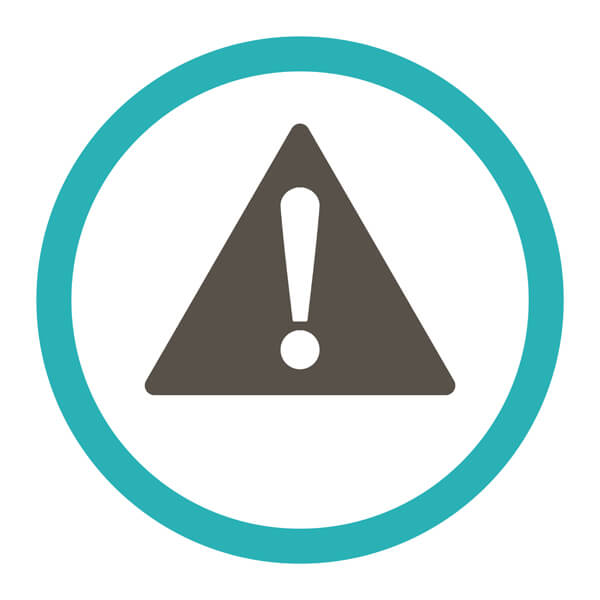
If you have a social media policy in place, you can link to this resource or issue a warning to them. If a customer has clearly crossed the line and you've issued a warning, it's okay to hit delete or block that person.
#10: Monitor Conversations About Your Brand
To keep on top of negative comments and prevent issues from escalating, it's important to monitor what people are saying about your company on social media.
A 2014 Mention study revealed that 31% of tweets containing company names don't include their Twitter handles. Similarly, customers won't always tag your company name in their Facebook updates. This practice makes it challenging to keep up with and track online conversations about your company.
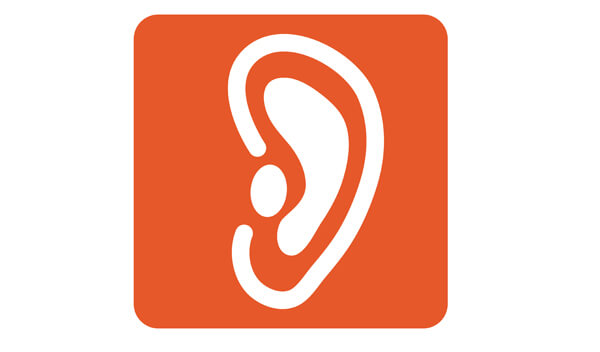
Here are two tools that can make it easier to monitor these conversations:
- Mention is a free online tool that allows you to track all key mentions across social media and blogs. You can choose which keywords to track and you'll receive a notification whenever these keywords are used. This is great way to find conversations where people haven't included your account name in their updates.
- Agora Pulse is another CRM (customer relationship management) tool that allows you to track when people have commented on your social channels, including Facebook, Twitter and Instagram. When you receive a notification about a comment, you can respond directly within the app and mark the comment as complete. This is an easy way to ensure you've replied to customer comments.
Final Thoughts
According to an NM Incite study, 71% of consumers who experience positive customer care on social media are likely to recommend the brand to others, compared to 19% of customers who don't get a response.
Obviously, you can't make all of your fans happy on your social channels, and that's okay. What's important is to be honest and open when dealing with negative comments. Adopting a personal approach means taking the time to understand customer issues when you're trying to help. This signals to them that you value their opinions.
What do you think? Do you use any of these techniques when dealing with negative comments on social media? What tactics work successfully for your business? Please share your thoughts in the comments below.
Organization photo, Traffic light photo, Caution photo and Listen photo from Shutterstock.
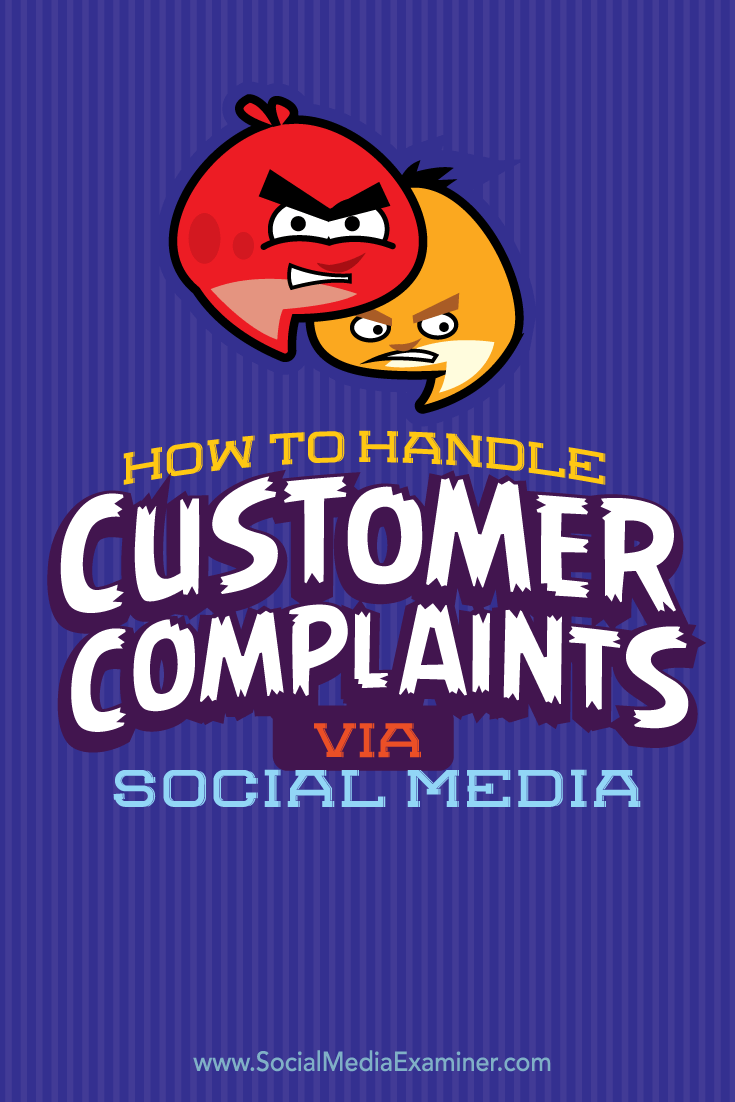
Attention Agency Owners, Brand Marketers, and Consultants

Introducing the Marketing Agency Show–our newest podcast designed to explore the struggles of agency marketers.
Join show host and agency owner, Brooke Sellas, as she interviews agency marketers and digs deep into their biggest challenges. Explore topics like navigating rough economic times, leveraging AI, service diversification, client acquisition, and much more.
Just pull up your favorite podcast app, search for Marketing Agency Show and start listening. Or click the button below for more information.

